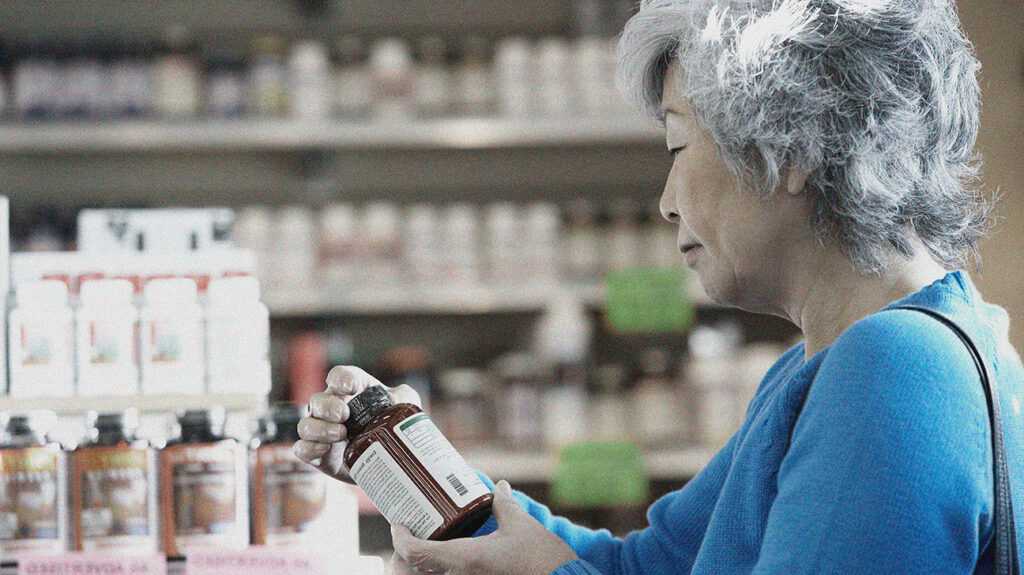Study hints that products may reduce COVID-19 risk in females
12 December, 2020

The research found small but significant decreases in the risk of SARS-CoV-2 infection amongst females - however, not males - who took multivitamins, vitamin D, omega-3 essential fatty acids, or probiotics.
Researchers at King’s College London, in britain, analyzed data from 1.4 million users of the COVID Symptom Review app in the U.K., america, and Sweden. The participants answered questions about their regular use of dietary supplements.
The software users also reported benefits from COVID-19 tests and whether they had experienced symptoms of the condition.
“Our research can be an observational study rather than a clinical trial, thus we can’t make strong recommendations based on the data we have,” cautions senior researcher Dr. Cristina Menni, of the School of Life Program Sciences, at King’s.
“Until we've further evidence about the role of supplements from randomized managed trials, we recommend following [National Health Service] rules on vitamin consumption as component of a wholesome, balanced diet,” she adds.
The study, which includes not yet been peer-reviewed, has been uploaded to the preprint server MedRxiv.
Female immune defenses
The researchers were surprised to find that only females seemed to benefit from taking the four products in question.
They cite, however, several studies which have found that females have more robust immune systems, which may mean that their immune defenses get more of a boost from supplements.
Alternately, females could be much more likely to wear masks or wash their hands than males, that could increase the apparent protective effects of taking supplements.
“These are interesting results, but due to the way the analysis has been conducted, these info absolutely cannot reveal that taking such health supplements ‘protects’ against infection [resulting in] COVID-19,” says Naveed Sattar, a professor of metabolic medicine at the University of Glasgow, in the U.K., who was not involved in the research.
“It can be that by being more health-conscious, some girls are less inclined to become infected, so that it’s the behaviors that describe these effects, not the supplementations,” he hypothesizes.
Seif Shaheen, a professor of respiratory epidemiology at Queen Mary University of London, adds that the researchers had not accounted for factors such as income and educational attainment within their analysis.
“A significant concern is these findings could be confounded by socioeconomic status, considering that individuals of higher status will take supplements and are also less likely to become infected with SARS-CoV-2,” he cautions.
The results at length
Out of 327,720 users of the iphone app in the U.K. who had each got a polymerase chain response or serology check for SARS-CoV-2, 175,652 reported having used supplementations regularly since the beginning of the pandemic. The analysis sample was predominantly female, at 66.8%.
Altogether, 10,508, or 6.0%, of the supplement users had tested great for the novel coronavirus, while 13,013, or 6.6%, of the nonusers had received excellent results.
After the researchers had adjusted for other factors that could contribute to COVID-19 associated risk, they found that four supplements were connected with reduced risk.
Spending probiotics, multivitamins, omega-3 fatty acids, or perhaps vitamin D was connected with a 14%, 13%, 12%, and 9% decreased risk of COVID-19.
Spending vitamin C, zinc, or garlic supplements was not connected with any reduced risk.
When the experts broke down the numbers by sex, they observed reduced risk connected with probiotics, multivitamins, omega-3 essential fatty acids, and vitamin D in females simply.
After analyzing data from app users in the U.S. and Sweden, the researchers found identical associations between supplement work with and verified SARS-CoV-2 infections.
Among the 993,365 frequent users of the application worldwide who hadn't undergone testing, 126,556 had reported a loss of smell or taste. This shows that they very likely had COVID-19.
When the experts analyzed data from these individuals, they found a small but significant decrease in risk among both men and women who frequently took omega-3 fatty acids, multivitamins, vitamin D, or probiotics.
Source: www.medicalnewstoday.com
TAG(s):
